Northern Arizona University was the overall winner of the 2024 Hydropower Collegiate Competition.
Office of Energy Efficiency & Renewable Energy
May 1, 2024Northern Arizona University was the overall winner of the 2024 Hydropower Collegiate Competition.
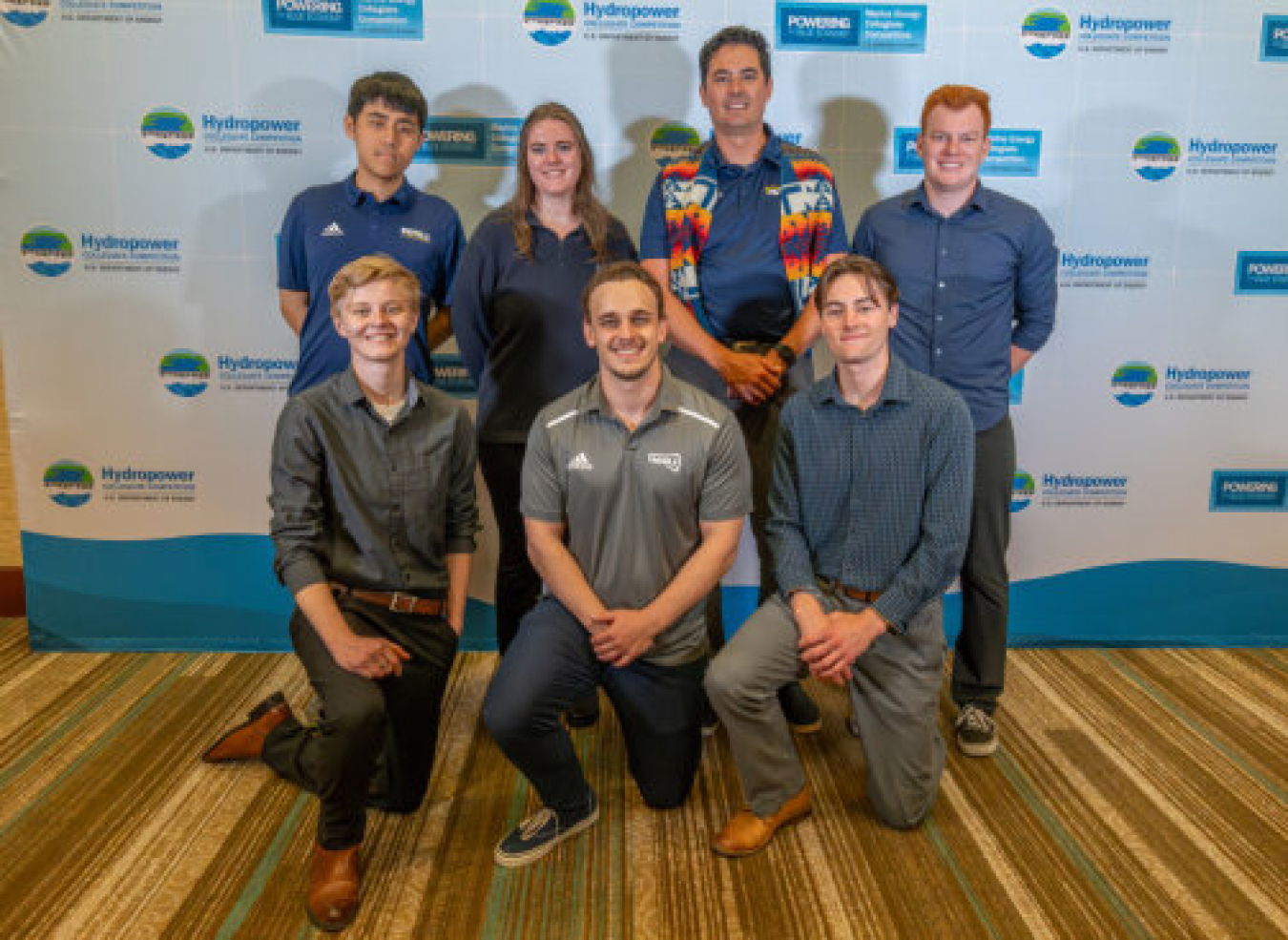
Washington, D.C.—The U.S. Department of Energy today announced the winners of the 2024 Hydropower Collegiate Competition (HCC). Northern Arizona University was the overall winner, followed by Johns Hopkins University in second place and California Polytechnic State University, San Luis Obispo in third place.
The HCC, now in its second year, asks multidisciplinary student teams to tackle common challenges in hydropower, giving them real-world exposure to the industry and a head start in a clean energy career. Hydropower has a key role in ensuring the electricity grid remains reliable and stable as it evolves to incorporate more variable renewable energy sources like wind and solar. However, more than a quarter of today’s hydropower workers will reach retirement age in the coming years, and the industry needs a new generation to fill these jobs and support the country’s clean energy goals. The HCC aims to train, equip, and inspire this next generation of the hydropower workforce.
“Hydropower has an important role in clean energy, and these winning teams bring the ingenuity, enthusiasm and vision we need for discovering how to tap its full potential,” said Jeff Marootian, principal deputy assistant secretary for energy efficiency and renewable energy. “And since the competition is designed to spark interest in these careers, it’s very exciting to imagine the possibilities with this caliber of talent leading our future clean energy workforce.”
This year’s competition asked teams to develop solutions to add power-generating infrastructure to existing non-powered dams. With less than less than 3% of the nation’s more than 90,000 dams producing electricity, there is a significant opportunity to expand clean energy in the United States with new hydropower.
Teams competed in three required challenges and one optional challenge. The nine competing teams shared their work April 29–May 1, 2024, at the 2024 National Hydropower Association Midwest Regional Meeting, co-hosted with the Midwest Hydro Users Group, in Des Moines, Iowa. Teams presented their technical plans, a poster summarizing their concept, and approaches to creating connections among the industry and their local communities.
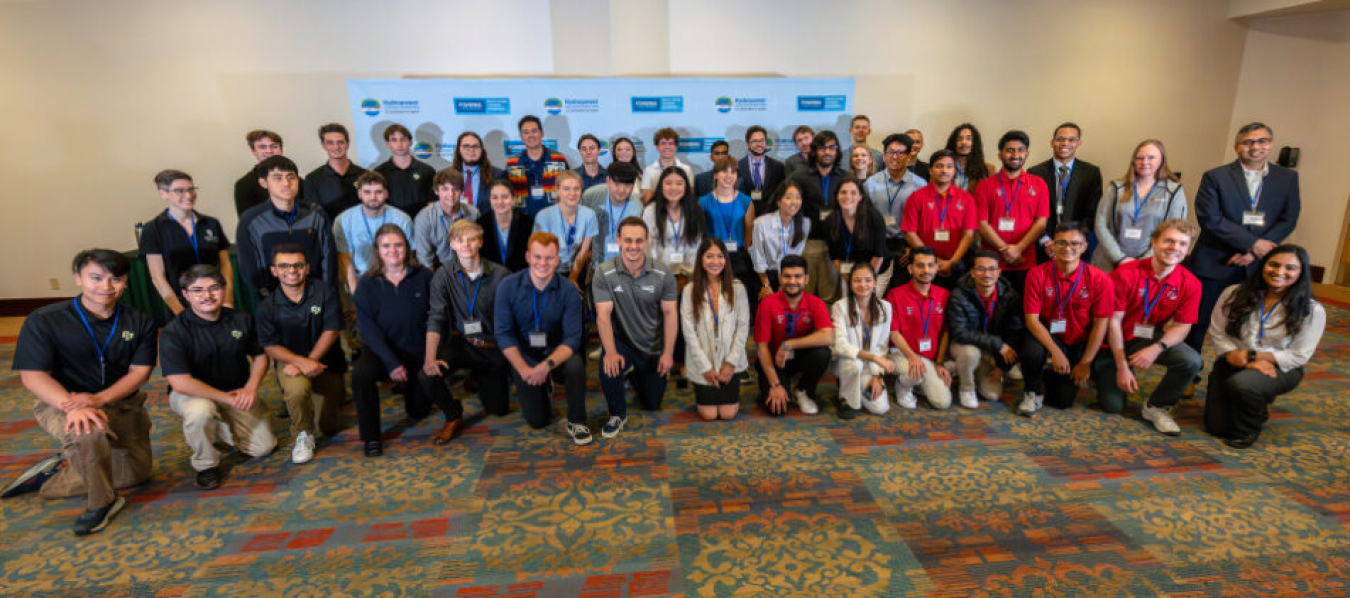
After reviewing the presentations, the competition’s expert judges selected the first, second, and third place winners. They also chose five individual category winners:
- Siting Challenge: Northern Arizona University
- Design Challenge: Northern Arizona University
- Community Connections Challenge: Northern Arizona University and Johns Hopkins University (tie)
- Optional Build and Test Challenge: Johns Hopkins University
- Best Poster: University of North Florida.
The judges also gave special recognitions to the following teams:
- Rising to the Challenge: University of Michigan
- Most Energized: Texas Tech University.
Applications for the 2025 HCC are still open. Those applications are due May 6, 2024, and selected teams are expected to be announced in late May or early June 2024.
The HCC is funded by the U.S. Department of Energy’s Water Power Technologies Office and administered by the National Renewable Energy Laboratory in partnership with the Hydropower Foundation.
###
More Prizes and Competitions News
-
 Ten teams receive a collective $1.5 million and Phase 3 opens to returning competitors.
Ten teams receive a collective $1.5 million and Phase 3 opens to returning competitors. -
 Six teams were selected for creating cost-effective recycling technologies that will increase the sustainability of U.S. wind energy systems.
Six teams were selected for creating cost-effective recycling technologies that will increase the sustainability of U.S. wind energy systems. -
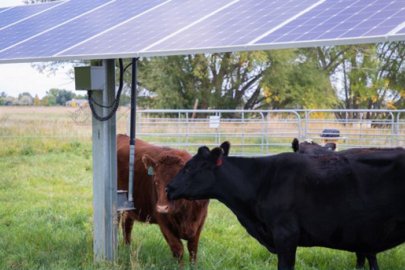 Six projects funded by the Inflation Reduction Act will help improve planning, siting, and permitting for large-scale renewable energy and storage. DOE also launched a prize to advance the co-location of solar energy production and cattle grazing.
Six projects funded by the Inflation Reduction Act will help improve planning, siting, and permitting for large-scale renewable energy and storage. DOE also launched a prize to advance the co-location of solar energy production and cattle grazing. -
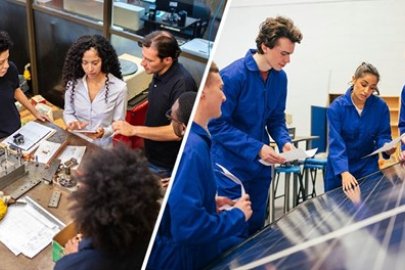 DOE announced the first winners in the first round of the American-Made Upskill Prize for the Solar Manufacturing Workforce.
DOE announced the first winners in the first round of the American-Made Upskill Prize for the Solar Manufacturing Workforce. -
 The Framing the Future: Industrial Technologies Photo Contest will award $27,000 for the best photos of the innovative technologies, processes, and people that will help the United States achieve a decarbonized industrial sector.
The Framing the Future: Industrial Technologies Photo Contest will award $27,000 for the best photos of the innovative technologies, processes, and people that will help the United States achieve a decarbonized industrial sector. -
 Thirty-six student-led teams will participate in these competitions, which engage and educate students about real-world challenges facing the hydropower and marine energy sectors and career opportunities in water power.
Thirty-six student-led teams will participate in these competitions, which engage and educate students about real-world challenges facing the hydropower and marine energy sectors and career opportunities in water power. -
The University of New Hampshire won the 5th annual Marine Energy Collegiate Competition.
-
 The Departments of Energy, Interior, Commerce, and Transportation today released a report summarizing their progress toward the goals of the Floating Offshore Wind Shot™, an initiative to drive U.S. leadership in design, deployment, and manufacturing.
The Departments of Energy, Interior, Commerce, and Transportation today released a report summarizing their progress toward the goals of the Floating Offshore Wind Shot™, an initiative to drive U.S. leadership in design, deployment, and manufacturing. -
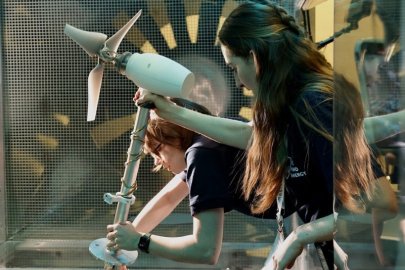 California State University Maritime Academy claimed first place out of 12 student teams in the 11th annual Collegiate Wind Competition final event in Minneapolis in May 2024.
California State University Maritime Academy claimed first place out of 12 student teams in the 11th annual Collegiate Wind Competition final event in Minneapolis in May 2024. -
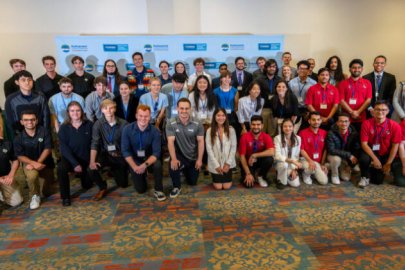 Northern Arizona University was the overall winner of the 2024 Hydropower Collegiate Competition.
Northern Arizona University was the overall winner of the 2024 Hydropower Collegiate Competition.

